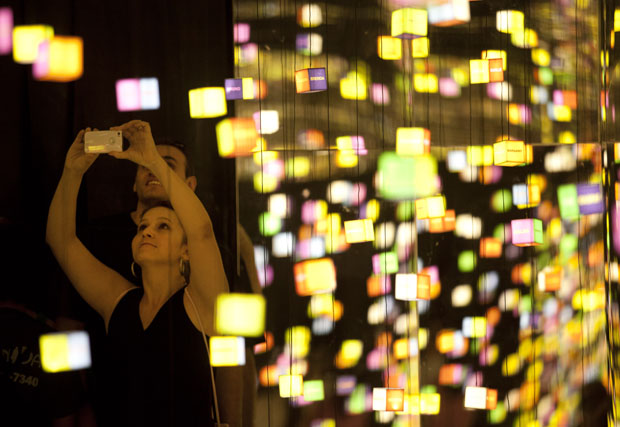Rising star or supporting player? Brazil takes center stage
By

Rising star or supporting player? Brazil takes center stage
By
Brazil is once again on the global stage. For starters: the Rio+20 Earth Summit kicks off this week. The global sustainable development summit, held in Rio de Janeiro, is “too important to fail,” according to UN Secretary General Ban Ki-moon. Some 20 years after the first Earth summit in Rio, Ban fears world leaders may fail in what he called a “once-in-a-generation” gathering to set out a plan for expanding prosperity and opportunity without destroying the planet’s environment. Add to that the country’s inclusion in the G-20, the growth of its energy industry and the awarding of the 2014 World Cup and 2016 Summer Olympics.
Brazil’s international role may be changing, but the South American state continues to face serious domestic challenges: This year Brazil became the world’s sixth-largest economy, but the country ranks only 84th on the UN Human Development Index — below countries like Libya and Venezuela.
So has Brazil really has arrived?
Monday on Worldview
We tackle this question with Brazil policy experts Sérgio Fausto and Denis Mizne. A key adviser to former President Cardoso, Fausto is one of Brazil’s leading political analysts and executive director of the Fundação Instituto Fernando Henrique Cardoso (iFHC). Fausto works to enhance the quality of democracy in Latin America thorough civic and intellectual engagement.
Mizne is executive director of the Lemann Foundation, a nonprofit organization dedicated to improving the quality of public education. Mizne founded the Sou da Paz (I am for peace) campaign in 1997 to raise awareness about alarming levels of gun violence, particularly among youth. In partnership with civil society organizations and national media support, Mizne’s campaign collected nearly 2,000 guns within its first 12 days. His work was a large part of the 80 percent homicide reduction that took place in São Paulo over the last decade.
Both men were in Chicago as recipients of the Gus Hart Fellowship from the Chicago Council on Global Affairs. The Chicago Council established the annual award to strengthen ties and mutual understanding between Chicago and the Latin American and Caribbean region.